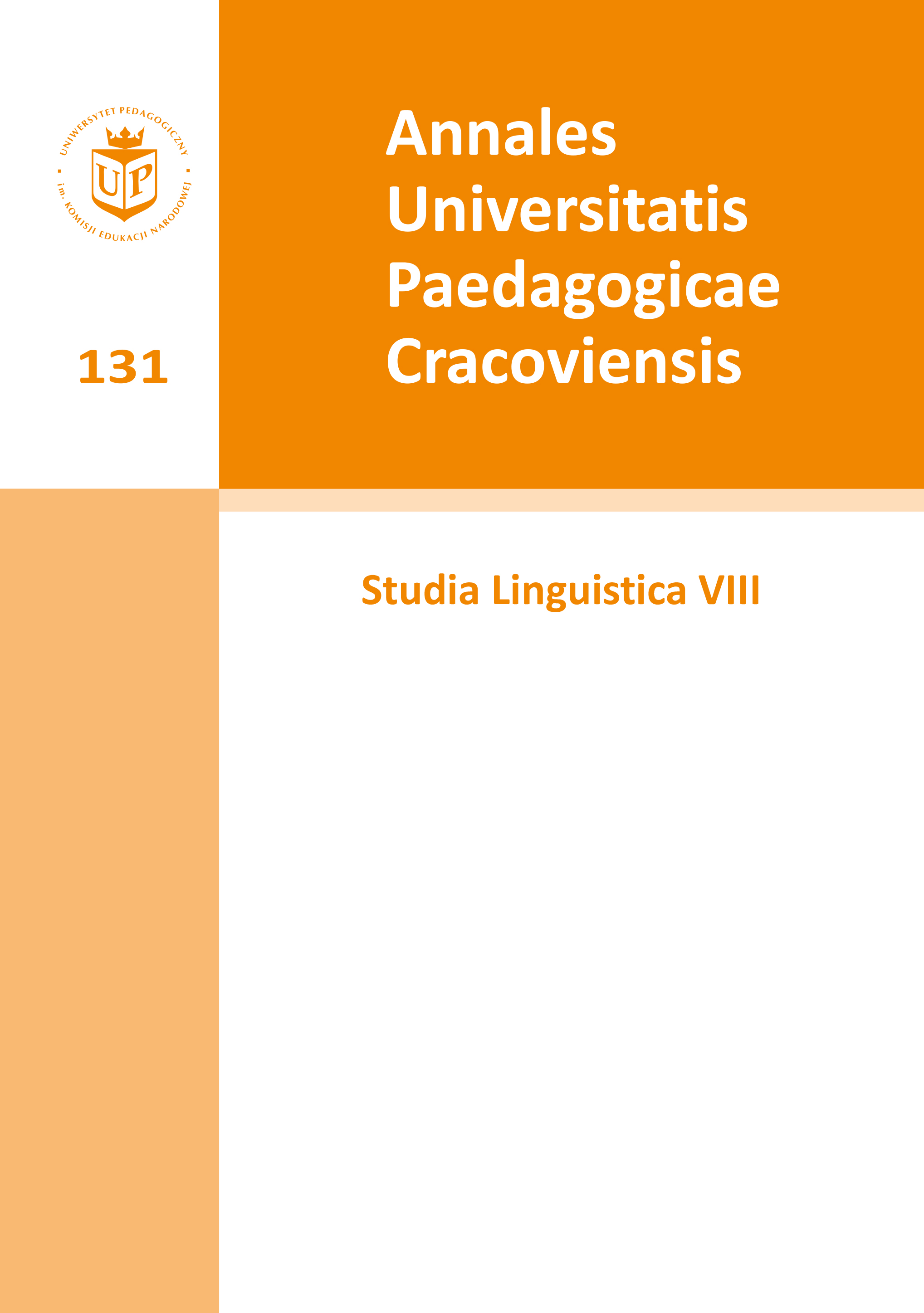Nazwa miejscowa Skalbmierz 1 w noweli i Szkalmierz w rękopiśmiennym słowniczku gwarowym Adolfa Dygasińskiego w świetle genezy toponimu i dokumentacji źródłowej
Main Article Content
Abstract
The author discusses the nineteenth-century variants of the toponym Skalbmierz/ Szkalmierz that occur in the works of Adolf Dygasiński: a novella whose action takes place in Skalbmierz, and the title of the manuscript of Słowniczek gwarowy od Szkalmierza [Dictionary of Dialects of Szkalmierz] given to Jan Karłowicz. The name of the town Skalbmierz (currently in the Świętokrzyskie Voivodeship) was well known to the writer since his childhood and youth. The author tries to determinate why Dygasiński used both variants of the toponym. The article presents the origins, and phonetic development of the toponym as well as source documentation. It also explains which of the variants is historically justified.
Downloads
Article Details

This work is licensed under a Creative Commons Attribution-NonCommercial-NoDerivatives 4.0 International License.
Author, submitting a text to the editorial board of the journal “Annales Universitatis Paedagogicae Cracoviensis. Studia Linguistica", certifies that the content of the article has not been published so far and that the work does not violate in any way the copyright or related rights of other person, as well as other rights of third parties, and that no one's rights to the work (or any part thereof) have been missed. After signing the contract, the property rights to the published materials are transferred to the Scientific Publisher of the University of the National Education Commission, Krakow.
“Annales Universitatis Paedagogicae Cracoviensis. Studia Linguistica” is an open access journal, and all its content is made available free of charge to users and institutions under the Creative Commons CC-BY-NC-ND 4.0 license (attribution, non-commercial use, no derivative works). Under this license, the authors agree that their work may be lawfully reused for any purpose, except for commercial purposes, without the prior consent of the author or publisher. Everyone can read, download, copy, print, distribute and process these works, provided that the author's marking and the original publication place are correct. Published texts may not be used to create derivative works (e.g. to translate and publish in another language without the consent of the publisher). This is in line with the BOAI (Budapest Open Access Initiative) definition. "Studia Linguistica" does not charge for submitting or processing articles.
